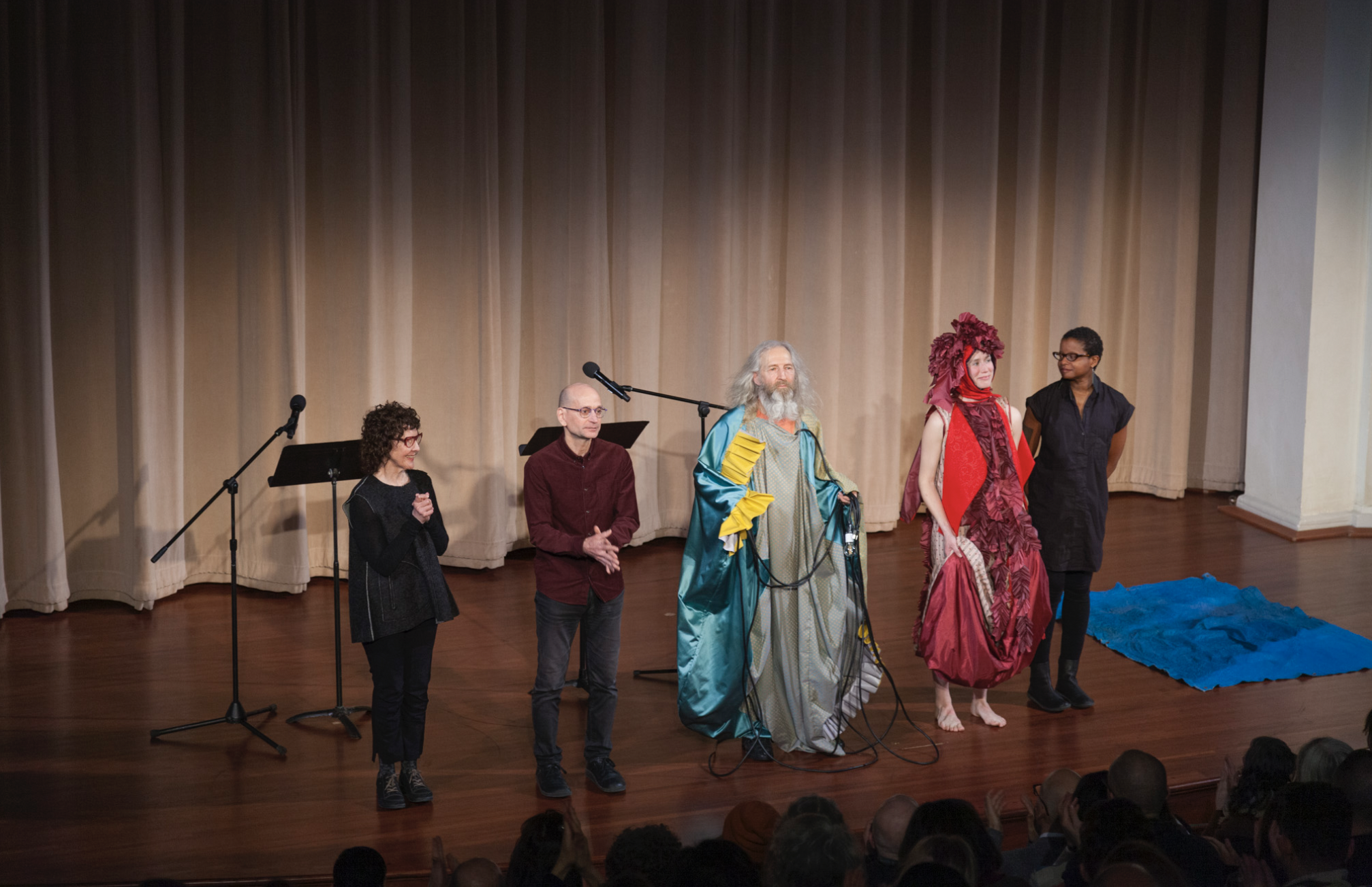The Gift of Disaster
This morning I received an email from Greek theatre director Elli Papakonstantinou. While sheltering on an island, she wrote a manifesto, “Theatre of Seclusion,” and has been working on a version of Antigone for online platforms. She invited me to join a broadcast of her piece. Of course, I will oblige. In a great triumph of digital capitalism, all social interactions have been fully mediatized. Last week, we had a zoom hang-out with a group of friends. We sat in front of our computers and phones for a couple of hours, chatting with drinks in our hands. And then, when I saw some of them in person, we stayed a few yards from each other, raising our arms as if to embrace each other, and hugging the air instead. It felt more awkward than “clinking” with our wine glasses over zoom.
After almost three weeks of “sheltering in place,” I noticed that an entire layer of language has been sliced off from my life. The texture of language consists not only of words, but of touches, gestures, bodily postures, smells, ambiance, and even the weather. Language is much more than chains of signs consisting of signifiers and signifieds. If language is not just a system of linguistic signs, then its purpose can’t be just communication. The image of a smaller stage within a stage reminds me of the argument that language is not merely an instrument for the exchange of thoughts. Jean-François Lyotard observed that the theory of language as a means of communication implies “that there are persons who exist independently of language and use it as pilots use their airplanes. Language would be the plane and then there would be someone to pilot it. But we do not control language.” If we don’t pilot language, we don’t pilot performance either. The impossibilization of performance as a form of public communication makes possible, or rather enables and activates, an important function of performance which knows nothing about communication, and couldn’t care less about it. It is not the performance of pilots, but of poets and mystics, and of all of us when we talk to ourselves as we cook, walk, daydream… Language as a non-instrument seems to me the smallest possible performance stage we can claim. Once we get there and make ourselves comfortable, we discover that it is also the largest possible stage.
If the pandemic is a deep disturbance of language, that is not only because its expansive, non-semiotic dimension has been annihilated, but also because its projective nature has been cut off in one fell swoop. Matthew’s strategic use of the word “disaster” speaks of this loss. There is nothing spectacular about this epidemic. Deserted streets of Menlo Park, CA, which are these days even deader than usual, remind me of Maurice Blanchot’s thought of “the calm of disaster” as “the annihilation of noon.” Like Matthew and Lin, I cancelled all of my plans for the next few months, and who knows, maybe for even longer. I miss my plans. They informed the way I think and speak. Again, Blanchot: “To think the disaster […] is to have no longer any future in which to think it.” All of a sudden, the future tense is becoming much more conditional than it ever was. The construction of sentences no longer requires “will” and “shall,” but also “if” and “when.” The conditional tense is just an excuse for thinking about the future, because we can’t. Without even noticing, I am beginning to practice a temporal askesis which is keeping me not only within the four walls of my home, but also in the imperceptible confines of the present. And the moment we realize that we are no longer the pilots of our life but the prisoners of the present, that’s when the plague strikes. Now I finally begin to glimpse the full proportions of Artaud’s words I have read and repeated so many times, about theatre being born when “the dregs of the population” start performing acts “without use or profit.” Performance is the acceptance of the gift of disaster.
Works Cited:
Artaud, Antonin. 1958. The Theater and Its Double. New York: Grove Press.
Blanchot, Maurice. 1995. The Writing of Disaster. Lincoln: University of Nebraska Press.
Lyotard, Jean-François. 1992. “That which Resists, After All, an Interview with Gilbert Larochelle.” Philosophy Today (Winter): 402-4017.
